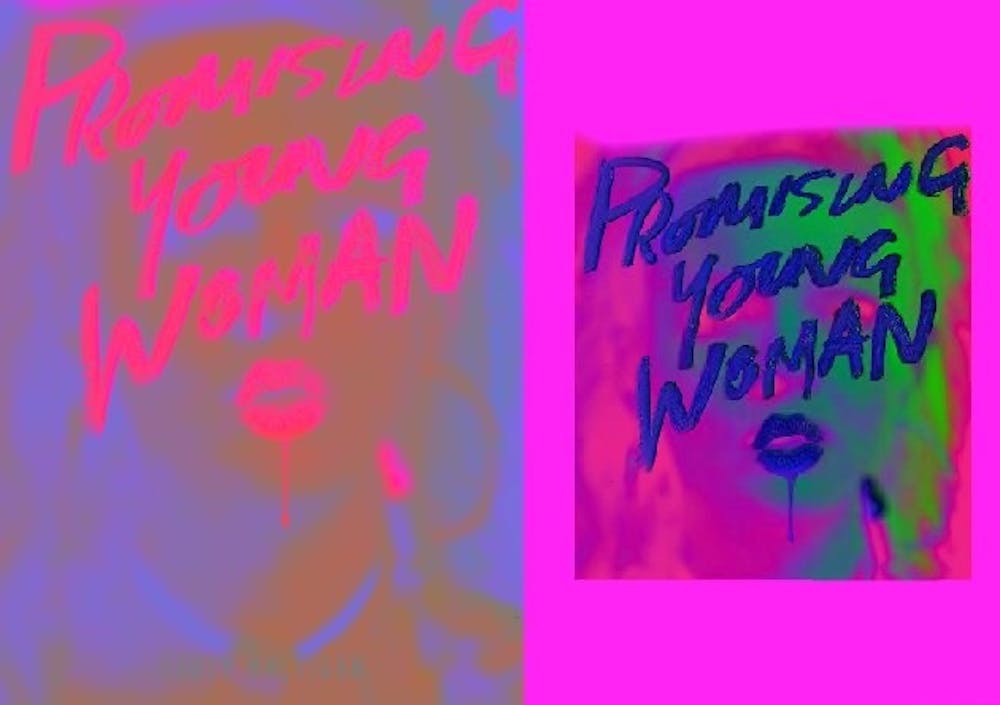Content warning: This article discusses themes of sexual violence.
In words that are all too familiar in the #MeToo era, the protagonist of Promising Young Woman is confronted by a man telling her, “It’s every guy’s worst nightmare getting accused like that!”
She responds, “Can you guess what every woman’s worst nightmare is?”
In the month since its theatrical release, Emerald Fennell’s directorial debut has garnered both immense praise and passionate critique. After witnessing its double–twist ending and lack of context, viewers are left with mixed feelings about the film. The movie ambitiously tackles the topic of sexual assault, which at first glance appears to warrant praise—but the audience instead witnesses many instances where it falls disappointingly short.
The title is an allusion to Brock Turner, who was convicted of sexual assault in 2016 yet only served a three–month sentence. News outlets and media headlines refused to call him what he is: a rapist. Instead, he was referred to as a “promising young man.” By playing with this phrase for the title of her female revenge film, Fennell asserts that male perpetrators aren’t deserving of sympathy. Instead, it is the victim of assault who deserves to continue on with life in her own right. In the case of Brock Turner, Chanel Miller should have been labeled as the promising one.
In the film, the said “promising young woman” is Nina, the lifelong best friend of protagonist Cassie Thomas. Nina drops out of medical school prior to the events of the movie after a classmate rapes her at a party. Both the faculty and students at Nina's school had refused to condemn the rapist and offered minimal support. After Nina's death—which the film vaguely hints was suicide—Cassie dedicates her life to seeking vengeance.
The first part of the film is a brightly colored, fast–paced revenge fantasy with a badass female lead on a mission. Cassie spends her nights at clubs acting too drunk to stand until a man picks her up. She then reveals she's completely sober, berating the man for trying to take advantage of her and scaring him straight. In this way, Cassie subverts the plans of the men she confronts and asserts her dominance. One self–proclaimed “nice guy” tries to defend himself by telling Cassie he really thought they had a connection. Cunningly, she responds by asking him several questions he cannot answer, including, “What’s my name?”
Both the visuals and soundtrack of Promising Young Woman juxtapose the film’s content. Female–sung pop music plays over candy–coated pastels and neons, multicolored nail polish and hair bows, and cutesy coffee shop scenes. In an interview with Vanity Fair, Fennell reveals that this stylistic choice is meant to demonstrate how “beautiful things are often deceptive.” She is successful in her intent to trap the viewer, as Charli XCX and Paris Hilton are sure to get anyone dancing, and the imagery is bright and enjoyable—making the events of the film even more shocking.
However, these elements also emphasize how Cassie is stuck in the past. She still wants to feel like Nina is with her. As the viewer learns more about her, we see elements of childhood innocence: Cassie still lives with her parents, sleeps in her teenage bedroom, and even seals her notebook with a scrunchie. Though her nights are filled with revenge, her daytime life is reminiscent of middle school—with Nina still by her side.
Cassie's regression into childhood becomes more obvious in the second half of the film, which is also a turning point for the character—her behavior shifts from admirable to destructive. However, Promising Young Woman lacks self–awareness by not making this clear to the audience.
The second act is a psychological case study hiding behind the facade of a part–rom–com, part–revenge thriller. After reuniting with former classmate Ryan, Cassie’s repressed memories of medical school come flooding back. She recounts the names and faces of the man who assaulted Nina, the classmates who watched, and the dean who didn't believe her. Rather than just scaring men out of potentially assaulting women in the future, she seeks to psychologically torment those who wronged Nina. What she does is not only cruel and problematic, but also draining and unproductive. Making these individuals feel sorry won’t change what’s already happened—Cassie had already devoted all her energy to avenging Nina, but now she is losing herself entirely to the tragedy.
There are moments that clearly demonstrate this downward spiral, but the film's final sequence seems to imply that Cassie is successful in her revenge. Disguised as a stripper, she hijacks the bachelor party of the man who raped Nina with the intent to disfigure him—only to be killed in the subsequent scuffle. Cassie's death is shocking and heartbreaking, but the movie reveals that she had a backup plan to incriminate both Nina's rapist and Ryan, who was a bystander during the assault.
The film treats Cassie’s unhealthy, self–destructive behavior as a triumph, though it is impossible to see how the ending could be considered any sort of success. Cassie and Nina are both dead at the hands of violence and danger, and both were failed by the society they live in. The film should have held itself accountable instead of sending the message that it's admirable to act like Cassie.
Promising Young Woman could have used its tragic ending to demonstrate how assault affects more than just a single victim. It could have chosen an inspirational ending where Cassie is given the opportunity to heal and move on, continuing her mission of preventing such assaults for others. However, it instead chooses to kill its traumatized protagonist, and is consequently laced with disjointed, dangerous implications.

